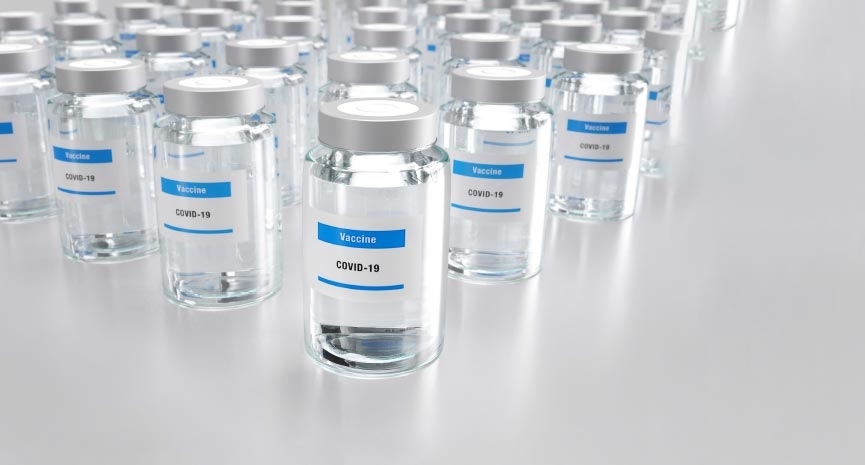Vaccine stability places air cargo in holding pattern
The rigour of science is hard at work to build a vaccine that would end the crusade of SARS-CoV-2, and has successfully enrolled a vaccine candidate for an early human testing. Biotech and pharmaceutical companies are bringing in best possible science and simultaneously shifting their attention to manufacturing

The rigour of science is hard at work to build a vaccine that would end the crusade of SARS-CoV-2, and has successfully enrolled a vaccine candidate for an early human testing. Biotech and pharmaceutical companies are bringing in best possible science and simultaneously shifting their attention to manufacturing and distribution of the vaccine. Logistics operations around Covid-19 vaccine are predicted to be time-and temperature-sensitive and tremendously reliant on air cargo.
Multiple vaccine producers have shown promising results for their vaccine candidates and some are ambitiously planning large-scale manufacturing before even mapping the complete efficacy of the vaccine. This hurry is not in vain, but a preparation to have in place, if not for the in-house vaccine, a manufacturing unit that could process large volumes of the winning Covid-19 vaccine candidate.
As these unique manufacturing initiatives see adoption around the world, supply chain community is readily picking cues and placing air cargo right in the centre of logistics operation for the awaited Covid-19 vaccine. In delivering a vaccine, which can be temperature sensitive product, and considering the urgent and widespread need to stop the spread of Covid-19, it is essential that the vaccine gets to people as soon as it is out without breaking it and with its potency intact.
Vaccine stability
In manoeuvring vaccines, logistics stakeholders need to configure deliveries by minding information on the vaccine stability. Currently there are different types of vaccines that are being tested and their differences bear on their stabilities as well. Gene-based vaccines, involving DNA, RNA and mRNA, require different storage conditions compared to spike protein vaccines.
Even among the genetically-engineered DNA and mRNA vaccines, there is deference in temperature requirements for storing them. A DNA vaccine is relatively stable and doesn’t require refrigeration and can be stored in a room temperature compared to an mRNA vaccine, which needs to be refrigerated.
Companies producing temperature-controlled containers for air cargo like Envirotainer, SkyCell, va-Q-tec, DoKasch etc. are gearing up for this logistics operation. From production and preconditioning to final delivery. Informing on the speculative preconditioning needed for one of the vaccine candidates, Parag Deshmukh, additional director, global strategic business development, Serum Institute of India, explained in a recent webinar organised by Indian Transport and Logistics News (ITLN), a group publication from STAT Media Group, that “Normally the vaccine industry works on WHO type one, type two and type three classification of a cold tray management and we would like to be indicating that there is a big range — you can go up to 35 degrees and be up to 2 degree and not frozen. So, (the vaccine) would be in that range, but the storage for a longer duration would be 2 to 8 degrees.”
The temperature bracket of 2 to 8 degrees, speculated by Serum Institute of India, for storing the vaccine for a longer period, puts the air cargo at the front, heading this logistics operation.
Freighters take the lead
The Covid-19 outbreak has gravely impacted the air cargo capacity. Nationwide lockdowns have forced many airlines to ground their passenger aircraft, which has led to serious crunch in the cargo capacity that usually runs in the bellies of these passenger planes. In May, belly capacity for international air cargo shrank by 66.4 percent according to data for global air freight markets released by International Air Transport Association (IATA). This may narrow down the onus of delivering vaccines using passenger planes down to freighter aircraft.
Depicting the vaccine carrying capacity of the Boeing 777F, Julian Sutch, head of global sales - pharma, Emirates SkyCargo, shed light on one of the past consignments involving vaccines and said,
I did a movement last year. And you can fit exactly a million vaccines in one triple seven freighter.
Julian Sutch, Emirates SkyCargo
Around a thousand B 777Fs would be needed to deliver 1 billion doses of the vaccine.
While significant information on the development of the vaccine is still under shadow, freighter operations are exceptionally on the rise. The significant demand of personal protective equipment (PPE), perishables, and pharmaceutical products is being services by the freighters and when the vaccine is out, the event will call for a massive mobilisation of these already busy aircraft. Sutch explained, “Covid-19 vaccine is a very important vaccine. There's also a lot of other pharmaceuticals that are being moved around the world all kinds of treatments every day, right and that could not stop and we had to try and keep that flowing. So within the space of a few days, we started uplifting our triple sevens, passenger planes, and deployed them all over the world for different markets.”
Cold chain management of the vaccine of this scale has never been imagined before and it demands for all stakeholders to join forces to preserve the integrity of the vaccine and deliver it to the consumer without breaking the chain. This herculean task may also see outliers like cargo drones, which have proved instrumental in making last mile deliveries, facilitating this operation.


